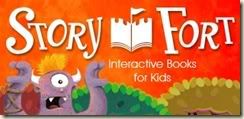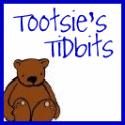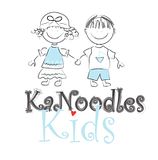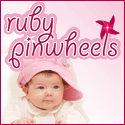
Rightbrainkids.com recommends the following activities with your children:
1. Introduce your child to the musical notes on the scale.
2. Use a perfectly tuned instrument (tuning forks work best).
3. Expose your child to many forms of classical music.
The Eguchi Method is used in Japan to teach perfect pitch to children. Information about this method is taken from the geneveith here:
1. Play the three-note C major chord on a piano, and the child is instructed to raise a red flag. Do a few times daily.
2. After a couple of weeks, a second chord and flag are added.
3. Keep adding until all white cords have a color associated with them.
4. Later, the child calls out the individual notes that make up the chord like red, do-mi-so.
There are many different music learning programs out there. Soon, I plan to present some information about the Suzuki method.
Having “perfect pitch” isn’t really the point, for myself. Otherwise it would just be a neat little trick. I’m more concerned with helping her to develop relative pitch in the process. She naturally matches pitches quite well and I just want to encourage it a bit in her. So what I do is (and plan to add)…
1. Listening to a lot of classical music. We already do this.
2. Suzuki CD’s to listen to.
3. Games that use rhythm using this online metronome-
4. Play this music game
5. We sing the scale-Do, re, mi….
6. Plan to purchase Piano for Preschoolers
If this topic interests you, you might find this link interesting. I think it explains the importance of music and the link to learning better than most websites.
I would adore comments on this post. In the past, I read quite a bit about the Suzuki and Yahama methods, but since my daughter was younger filed it away mentally as something to look at as she got older. Preschool is a time, many start using these methods. I’d love some good links and additional information about this subject. There aren’t Suzuki instructors close by and even if there was, we can’t afford it at this time. I’d like to try and teach her at home. Again, would LOVE comments.




















6 comments:
It sounds like you're on a great track. I hadn't seen that online music game and it's pretty cool - thanks for the link!
I was a Suzuki kid; I started lessons when I was four years old and it definitely helped make music a big part of my life. We moved and lost our teacher when I was six years old, but I can still play pretty much any melody on a violin. One of my sisters is a professional violist. Given unlimited funds, I would choose the Yamaha method for my own kids - I've heard great things about it from multiple (reputable) sources.
Oh, one more thing - I like your approach of focusing on relative pitch over perfect pitch. I have good relative pitch, but not perfect pitch. My sister has perfect pitch, and in some ways it's a hindrance not a help - for example, it's hard for her to sing along with a group of people singing a song in a key other than the one it was written in because she has to mentally transpose the song in her head. Perfect pitch has its benefits, certainly, but I think it's a mixed blessing.
How does a mother who is tone deaf (even after 13 years in band, orchestra, marching band...I was applauded anytime I happened to be in tune & yet I still don't hear the difference.) help with the musical journey of her children? I know I sing horribly & the only time I'll sing joyfully is alone, with the children or if the music is up REALLY loud & I'm soft (hate to sing when I'm at church). I play a lot of KLove, classical, oldies for the kids, but the more I learn about Montessori & Waldorf it seems as if I as an adult should just have these skills or I'm going to destroy my children's singing ability. I have been told by my father a few years ago (amazing singing voice/ability) that my middle can harmonize,etc... HELP! I don't know how to support them. I do tell them when they ask why I don't sing around others that it's because I want to listen to the voice of others but I noticed they're starting to do this instead of singing. What does a tone deaf mama do to teach/support music & singing?
I'm never sure if people check back here or if I need to go to their blog...I'll post both places. You are so welcome. Wow, it sounds like it is a wonderful approach and that you both benefited. I've heard about that hindrance before. I defintitely think I'll be focusing more on relative pitch. Otherwise it seems to teach that perfection is the key, which I do not want her to thank. I so appreciate the comment!
Honey, I don't think that is the case. I personally know many people who had parents who couldn't sing at all and they sing very pretty. Maybe you could set aside time every week for them to practice singing. Maybe get some voice lesson cd's? This is all personal opinion and none of it based on theory. I love singing more than just about anything. To me, it is one of the most precious gifts. I sing almost constantly. Do I spend all my time focusing on notes? Nope, I'm focused on joy and how much I love singing. Maybe put the focus on joy? To me, that is the point. I want to enhance my child's joy of music. I sing pretty good and therefore I think I enjoy it more than someone who can't carry a tune. I want my child to have the same experience. That's the only reason it matters to me.
Hello,
I'm so glad you are enjoying music with your little ones! I used to teach Gymboree and was a preschool teacher--and I believe that exposure to music and enjoying music together is so important. Read my article, "Why Music is Important for Preschoolers", on my blog (under the "my articles" tab.)
Blessings,
Susan Lemons www.susanlemons.wordpress.com
Post a Comment